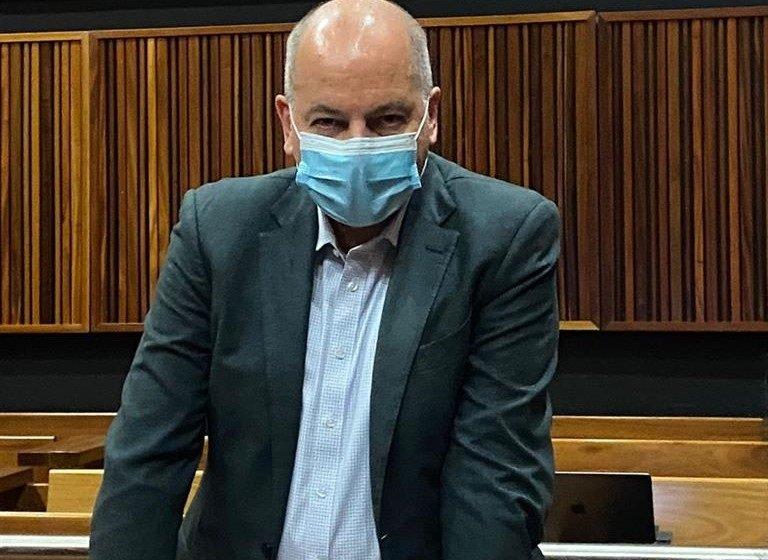Africa-Press – South-Africa. Eric Wood, the businessman who is one of the people charged with corruption and fraud in connection with the acquisition of Transnet’s 1 064 locomotives, is free to travel abroad after he won an application to have his passports held by the state released.
Wood, currently out on R250 000 bail, wanted his South African and British passports – which are in possession of the state as part of his bail conditions – to be returned to him.
Magistrate Brian Nemavhidi on Wednesday ruled that the state had “not made a strong case in opposing the application” and that it is in the interest of the law that his documents be handed back to him so that he can travel to Spain and London to visit his family.
Nemavhidi ordered that Wood’s passport be handed back on 9 September. He is expected to hand back the documents to the investigating officer on 5 October 2022, five days after his return.
The former shareholder in Regiments – a Gupta-linked company that featured prominently in the questionable tenders with state-owned companies, such as Transnet – on Wednesday argued in the Specialised Commercial Crimes Court in Palm Ridge that his elderly parents were frail and sickly and were unable to travel to South Africa to be with him.
He had planned to travel in September and stated in his affidavit that his father’s health was deteriorating at a rapid pace and that this may be the last time he would see him. His parents reside in Spain and are said to be between the ages of 88 and 90.
Wood was arrested on 27 May along with former Transnet executives, including former CEO Siyabonga Gama. Wood also founded Trillian with Salim Essa, and both Trillian and Regiments were closely associated with the Guptas and central to their plan to extract billions from state-owned enterprises.
In opposing Wood’s application, the state had sought to convince the court that the businessman, who struck a forlorn figure in the dock, may use the opportunity to skip the country as he could “significantly benefit from a fresh or new start somewhere [outside] of the republic”.
Although Wood’s vast wealth is in South Africa, the state was of the view that this would not be sufficient to ensure that he returns.
The state believes that it would be “extremely difficult” to monitor Wood’s movements outside the country and that his parents and daughter, who are outside the country, are reason enough for him not to return.
State Advocate Peter Masiakwala argued that in the case Wood was allowed to travel and decided to abscond, the state would have to embark on a lengthy and “expensive exercise” of trying to get him back through an extradition process.
“We wanted these passports because we wanted to limit his movements within the borders of South Africa,” said Masiakwala.
“There is no guarantee that he would not return, we have learned that with Bushiri and the Guptas.”
The state believes that it has a strong case against Wood and has gathered evidence through witnesses, bank records, and other forensic reports and that “it would be in the interest of the accused to evade trial and a possible conviction”.
“The accused may be sentenced to undergo a minimum period of 15 years’ imprisonment if convicted.”
Wood’s advocate Estelle Kilian described the state’s belief that Wood would likely abscond as a “frivolous idea” as he had “no intention” of evading the trial.
“It would mean abandoning everything he has worked for … he will suffer if he becomes a fugitive of justice,” said Kilian.
Magistrate Nemavhidi stated that there was no comparison between Bushiri’s case and Wood’s, as the former had absconded despite having his documents held by the investigating officer.
“It is common cause that one can enter and leave the country without a passport. The collapse of the borders of this country allows for people to leave as they please, this also applies to the applicant,” he said, adding that Wood had chosen not to do so.
In a further blow to the state’s case, the court shot down a move by the prosecutor to get Wood to pay R2 million to secure his return. Nemavhidi questioned the motive behind the proposed payment as the majority of Wood’s assets were already tied to a preservation order.
For More News And Analysis About South-Africa Follow Africa-Press






